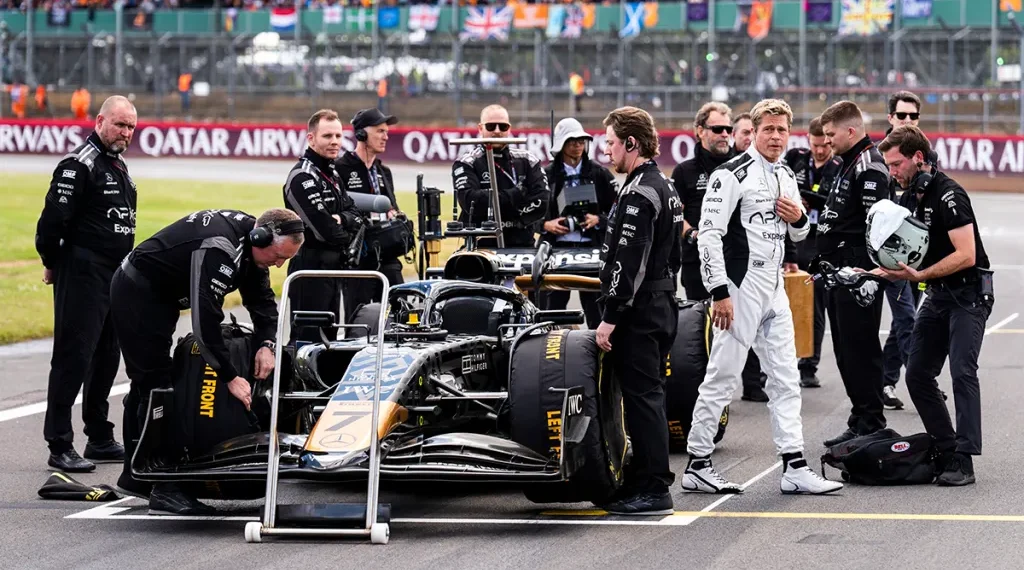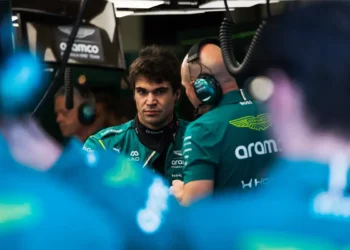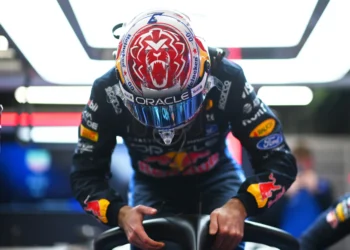As Formula 1 gears up for its Hollywood debut, the upcoming Brad Pitt-led movie, boldly titled F1, is already sparking intrigue and high expectations. With unprecedented access to the sport, a massive production budget, and the Formula 1 name itself at stake, the movie has a lot riding on its success. But can it live up to the hype?
Why the Title ‘F1’ Is a Risky Power Move
Choosing the title F1 is a bold statement, tying the movie directly to the iconic motorsport brand. Unlike past racing films like Rush or Grand Prix, which stood as cinematic representations of F1-adjacent stories, this movie positions itself as the definitive Formula 1 film.
This connection comes with benefits:
- A global brand boost, tapping into the prestige of 75 years of Formula 1.
- An instant marketing edge, ensuring audiences know exactly what the movie is about.
However, it also raises the stakes. If the movie falters, the fallout won’t just be another Hollywood misstep—it could tarnish F1’s reputation. The sport’s highly protective stance over its branding means this is more than just a film; it’s a cultural gambit to reach new audiences while deepening the fandom.
The Vision Behind the Film
Directed by Joseph Kosinski, the visionary behind Top Gun: Maverick, the movie promises breathtaking visuals and authentic racing action. Kosinski, teaming once again with Oscar-winning cinematographer Claudio Miranda, has a track record of delivering cinematic spectacles, as seen in Maverick’s fighter jet sequences.
The on-track filming, using real F1 circuits during Grand Prix weekends, guarantees that the racing scenes will look spectacular. Early footage and teaser trailers have showcased this visual ambition, and with Lewis Hamilton serving as a producer, the racing authenticity appears locked in.
But the visuals alone won’t carry the film.
Hollywood A-List Meets Racing’s Realities
With Brad Pitt in the lead, the movie boasts serious star power. Pitt’s talent and charisma make him a compelling figure, but the dialogue and story surrounding his character remain question marks. The only snippet of dialogue revealed so far—about building a car for “combat”—has left fans unimpressed, calling it overly simplistic and disconnected from the intricacies of F1 engineering.
“How am I supposed to make that safe?”
“Who said anything about ‘safe’?”
This exchange might work in a trailer but raises concerns about the narrative’s depth. Will the film rely too much on action and spectacle at the expense of character-driven drama?
A Script That Must Deliver
The movie’s sole credited writer, Ehren Kruger, has a mixed track record. While his work on Top Gun: Maverick earned an Oscar nomination, his previous credits include less critically acclaimed projects like the Transformers sequels. With no creative input from Maverick collaborators Tom Cruise and Christopher McQuarrie, the weight of crafting a compelling narrative falls squarely on Kruger’s shoulders.
The dialogue and storytelling need to strike a balance:
- Casual audiences must find it accessible and engaging.
- Die-hard F1 fans must feel respected, with enough nods to the sport’s technical and cultural nuances.
The Legacy of Racing Films
Racing movies have a history of fluctuating success. Films like Rush and Le Mans are revered for their authenticity and storytelling, while others, like Driven, failed to resonate with audiences.
With F1, Kosinski and his team aim to surpass all predecessors, creating a movie that isn’t just about Formula 1 but embodies the very essence of the sport. However, the stakes are monumental—especially when the film uses F1’s logo and name as its own.
High Risks, High Rewards
The movie’s success will be measured by more than box office numbers:
- Critical reception: Will reviewers embrace it as both a cinematic and sporting achievement?
- Audience reception: Can it convert casual moviegoers into F1 fans?
- Cultural impact: Will it inspire the next generation of fans and drivers, as Drive to Survive did?
F1’s involvement guarantees the movie will have all the tools necessary to succeed: unparalleled access to the sport, cutting-edge visuals, and a platform to reach millions. But as history shows, even the most star-studded projects can fall flat if they fail to connect with audiences.
Will F1 Cross the Finish Line?
The Brad Pitt-led F1 movie is a daring venture that could redefine how sports films are made—or serve as a cautionary tale for overshooting ambition. With Kosinski at the helm, Pitt leading the charge, and Formula 1’s brand on the line, the stakes couldn’t be higher.
As the 2025 release approaches, fans and critics alike are revving their engines, ready to see if this cinematic gamble pays off—or crashes out spectacularly.










